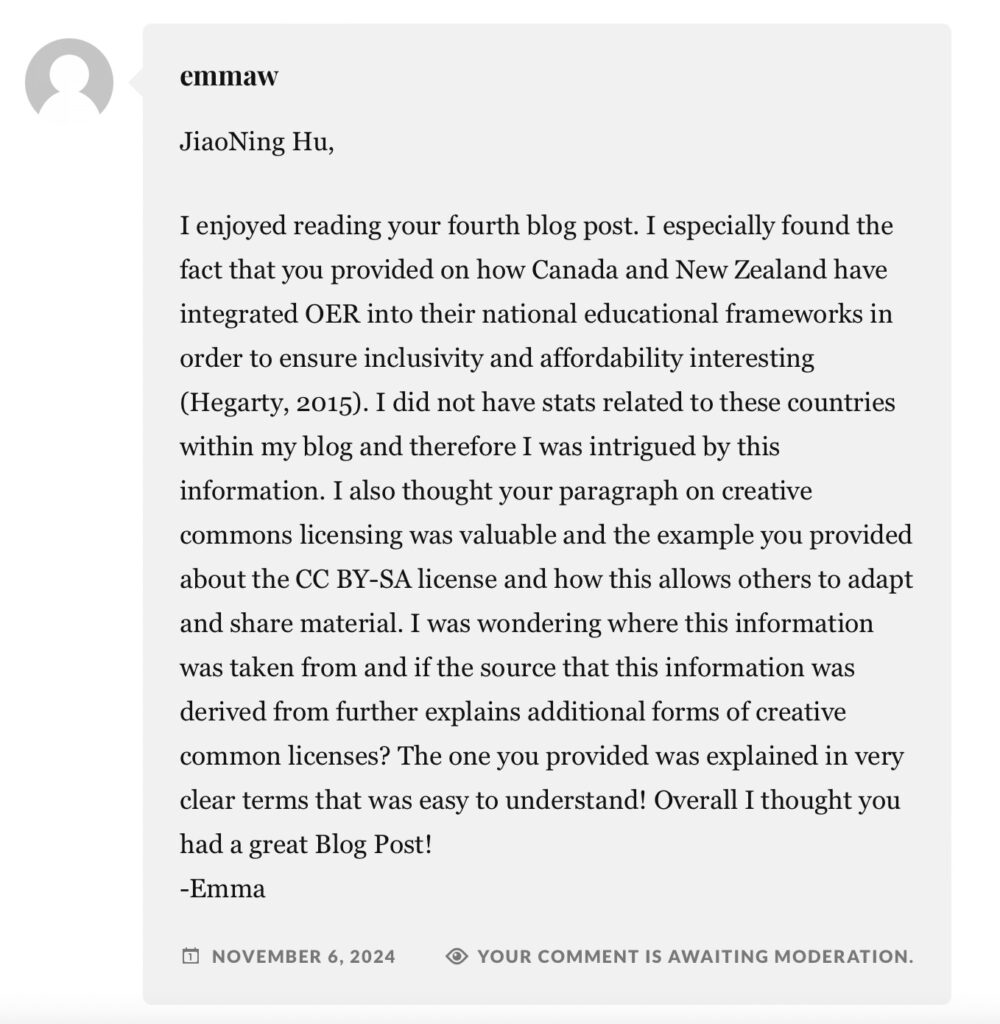Response Post #1 – Marco Chong
In this response post I focus on Marco Chong’s ideas about open education and various learning modes:
Response Post #2 – JiaoNing Hu
In this response post I focus on JiaoNing Hu’s ideas about asynchronous learning and the importance of digital literacy:
Response Post #3 – Marsha Chan
In this response post I focus on Marsha Chans ideas surrounding modes of learning digital identities:
Response Post #4 (Blog Post 2) – Elizabeth Moore
In this response I focus on Elizabeth’s ideas about constructivism as well as difficulties in the online educational environment.
Response Post #5 (Blog Post 2) – Sherry
In this response I focus on Sherry’s ideas about how pedagogy fosters communication and social interaction in the online environment as well as her thoughts on Connectivism.
Response Post #6 (Blog post 4) – Marsha Chan
Within this response I focus on Marsha’s insights on global technology disparities in implementing OER, effective use of visuals, and emphasis on the importance of student collaboration, belonging, and being heard in the classroom.
Response Post #7 (blog post 4) – Marco Chong
In this response I focus on Marco’s ideas about OER’s role in promoting educational equity, its financial benefits, and the influence of capitalist society on OER adoption. Furthermore, I agree with Marco on the value of collaboration in open pedagogy.
Response Post #8 (Blog post 4) – JiaoNing Hu
In this response I focus on the info JiaoNing Hu states on Canada and New Zealand’s use of OER for inclusivity. I also state that I like the clear explanation of the CC BY-SA license and wonder if there’s more info on other Creative Commons licenses.

